Entertainment
/ArcaMax
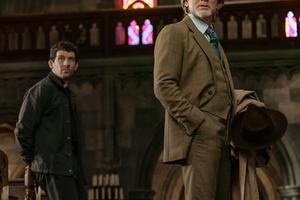
Rian Johnson has some 'conceptual ideas' for Knives Out 4
Rian Johnson has some "conceptual ideas" for a fourth Knives Out movie.
As the latest entry Wake Up Dead Man: A Knives Out Mystery debuts on Netflix, the 51-year-old director has already turned his attention to what's next for his whodunnit franchise, and while Johnson does have some ideas for the fourth film, he has emphasized they are not "...Read more
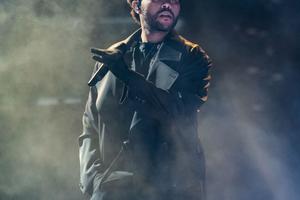
The Weeknd strikes landmark catalogue partnership with Lyric Capital Group
The Weeknd has entered into a major new business venture with Lyric Capital Group, marking one of the most significant catalogue deals ever made by a contemporary artist.
Representatives for the 35-year-old singer -- born Abel Tesfaye -- confirm that Lyric has taken an investment stake in his music catalogue spanning from the beginning of his ...Read more
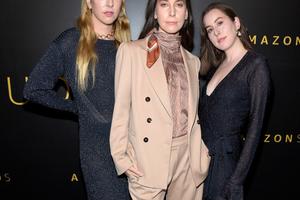
Haim star thought she was 'hallucinating' when she heard about Grammy nomination
Alana Haim thought she was "hallucinating" when she heard Haim had been nominated for Best Rock Album at the 2026 Grammy Awards.
The sister trio - completed by Este and Danielle Haim - were left stunned when they received the nomination as they are the first all-female group to receive the nod from the Recording Academy.
Alana told the BBC: "I...Read more
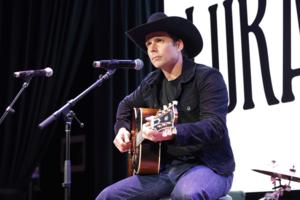
Q&A: Lukas Nelson on competing for a Grammy against his famous dad
LOS ANGELES — Lukas Nelson is sitting on his tour bus behind the Fonda Theatre on a recent evening as he awaits a takeout bag with dinner inside it.
In a few hours, the 36-year-old singer and songwriter will take the stage for a show behind this year's "American Romance," his first solo LP after a decade and a half fronting his band Promise ...Read more
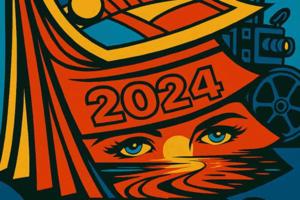
Column: Nick Digilio is surviving the movie critic world and has '40 Films' to prove it
CHICAGO — Before the internet changed the world, it was easy to find a movie critic.
They were in the magazines and newspapers, on TV and radio. You might even sit next to one at a tavern, stumble over one on your way to the bus stop.
In 1990, let’s say, that crowd was dominated by Roger Ebert and Gene Siskel, the critics for the Sun-Times...Read more

Q&A: Mon Laferte on her edgy 'Femme Fatale' LP
LOS ANGELES — The press has often labeled Mon Laferte a “femme fatale” — a seductive woman who inflicts distress upon her love interests.
Nearly two decades into her singing career, the Chilean singer-songwriter has learned to embrace the old-fashioned trope of the wizened seductress in “Femme Fatale,” her ninth studio album, which ...Read more
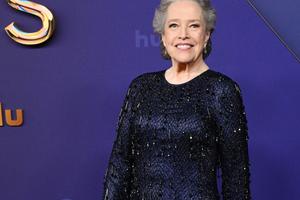
Kathy Bates 'horrified' by Rob Reiner's death
Kathy Bates is "horrified" by the "terrible news" of Rob Reiner's death.
The 78-year-old moviemaker and his wife Michele Singer Reiner, 68, were found dead at their home in Los Angeles on Sunday (14.12.25) following an "apparent homicide" and now his Misery star Kathy has shared her devastation.
In a statement given to NBC News, Bates, 77, ...Read more
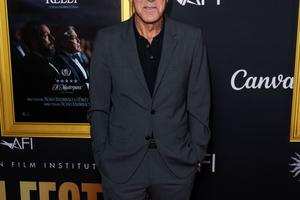
George Clooney has given up 'kissing girls' on screen
George Clooney has given up "kissing girls" on screen due to his advancing years.
The 64-year-old Hollywood heart-throb - who is father to eight-year-old twins Ella and Alexander with his lawyer partner Amal - has admitted he can no longer see himself as a cinema Lothario and now hopes his career will emulate that of movie legend Paul Newman.
...Read more
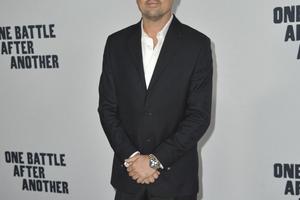
Leonardo DiCaprio rules out directing
Leonardo DiCaprio doesn't want to direct - because he doesn't think he'd be as good as Martin Scorsese.
The 51-year-old actor admitted stepping behind the camera has never been in his plans but it has "never" been a consideration because he can't come close to the greatness of his Killers of the Flower Moon filmmaker, with whom he is currently ...Read more
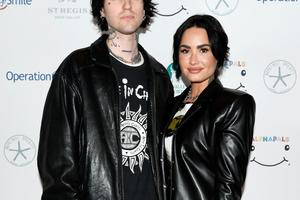
Demi Lovato and Jutes shared 'movie moment' at wedding
Demi Lovato and Jutes enjoyed a "movie moment" during the first dance at their wedding.
The couple got married in May and at their reception, Goo Goo Dolls' John Reznik performed the group's hit song Iris as they took to the dancefloor for the first time as husband and wife, and now Jutes - whose real name is Jordan Lutes - has admitted he will...Read more
![Bang Showbiz / Sinners director Ryan Coogler 'almost lost [his] mind' filming Michael B. Jordan as the Smokestack Twins](https://resources.arcamax.com/newspics/cache/w300lh200/366/36688/3668879.jpg)
'I almost lost my mind': Ryan Coogler reveals the hardest Sinners scene to film
Ryan Coogler "almost lost [his] mind" shooting Michael B. Jordan as the Smokestack Twins in Sinners.
The 39-year-old director has recalled the difficulty he faced filming Jordan, 38, and his double Percy Bell as Smoke and Stack during a driving scene for his 2025 vampire blockbuster, which demanded meticulous planning and timing.
During an ...Read more
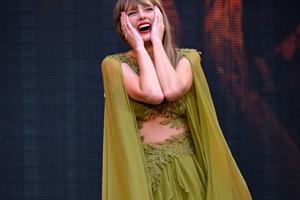
Taylor Swift left Eras Tour worker stunned by generous cash bonus
Taylor Swift's Eras Tour staff almost "pass out" and cry as they receive bonuses.
The 36-year-old megastar was reported by People to have generously given everyone involved in her record-breaking jaunt a share of $197 million to thank them for their part in making the 149 shows a success.
And, in an episode of her Disney+ docuseries The End of...Read more
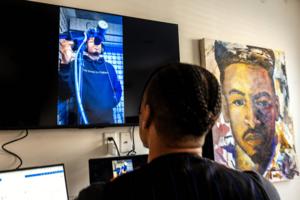
The West Philly rapper whose work has landed on 'Abbott Elementary.' Twice
PHILADELPHIA — When Philly artist Amir Bey Richardson first uploaded his rap songs online in 2010, he was told his music was “too corny” to garner an audience.
“I definitely had friends who encouraged me, but I had other friends who used to call it ‘bus driver rap,’” Richardson said. “Or they said, ‘Too many people rap. Get ...Read more
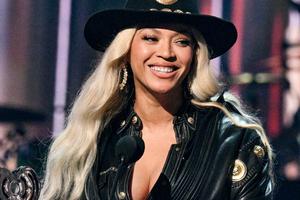
Beyonce's Cowboy Carter tour crowned highest-earning solo tour of the year
Beyoncé has topped Billboard's 2025 year‑end touring report, with Cowboy Carter finishing as the highest‑grossing solo tour of the year. The run earned $407.6 million from 32 shows. Total attendance reached 1.6 million.
The tour followed a residency‑style format across nine cities. Billboard also confirmed that Cowboy Carter is now the ...Read more
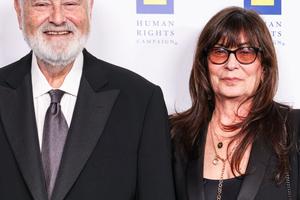
Rob Reiner and wife Michele Singer Reiner killed in 'apparent homicide'
Rob Reiner and his wife Michele Singer Reiner have been found dead at their home in Los Angeles.
The bodies of the Hollywood actor/director, 78, and his 68-year-old partner were discovered at their property in Brentwood on Sunday (14.12.25) with Los Angeles Police confirming they are investigating an "apparent homicide", according to Variety.
...Read more
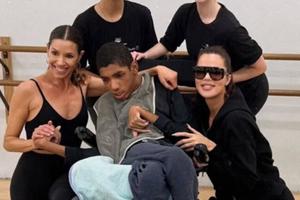
Khloe Kardashian calls out 'gross commentary' about Tristan Thompson's son Amari
Khloe Kardashian has called out the "gross commentary" about her ex Tristan Thompson's son Amari.
The 41-year-old Good American co-founder has children True and Tatum with former partner Tristan, 34, and although the pair are no longer a couple, she was close to Tristan's late mother Andrea and chose to take over Amari's care after Andrea's ...Read more
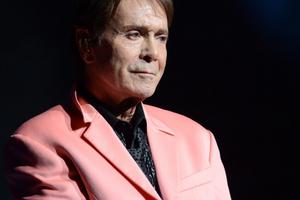
Sir Cliff Richard battled prostate cancer in secret
Sir Cliff Richard has survived a secret battle with prostate cancer.
The 85-year-old entertainer has revealed he was diagnosed with the disease after it was picked up by doctors during an insurance check-up ahead of a tour and it has now "gone" as it was spotted early before it could spread.
Cliff opened up about his health crisis during an ...Read more

Kristen Stewart reveals the best parts of being married to Dylan Meyer
Kristen Stewart says being married to Dylan Meyer has reshaped her sense of home and identity.
The Twilight star, 35, and the 38-year-old screenwriter tied the knot in the garden of their home in Los Angeles on Easter Sunday (20.04.25).
And, in a new interview, the actress has opened up about how grateful she is for the family she has curated....Read more
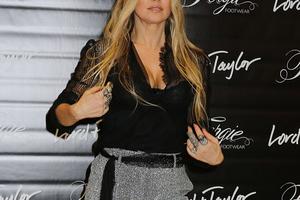
Fergie reunites with Black Eyed Peas
Fergie has reunited with her Black Eyed Peas "brothers".
The 50-year-old singer left the group in 2017, 15 years after she first joined, and on Saturday (13.12.25) she got together with Taboo, Will.i.am, and Aple.de.ap to enjoy a joint celebration for their birthdays.
Sharing a series of photos from the night, Fergie wrote: "Finally got to ...Read more
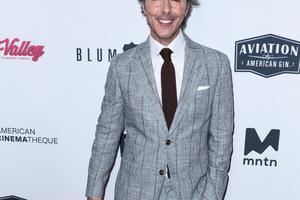
Shawn Levy offers Stranger Things finale teases
Shawn Levy has promised the end of Stranger Things will be "as good as any TV series finale" he has ever seen.
The executive producer has teased that not only will fans be satisfied by the way the Netflix drama ends after five seasons, but they'll be particularly pleased to know that the ongoing long triangle between Nancy Wheeler (Natalia Dyer...Read more










